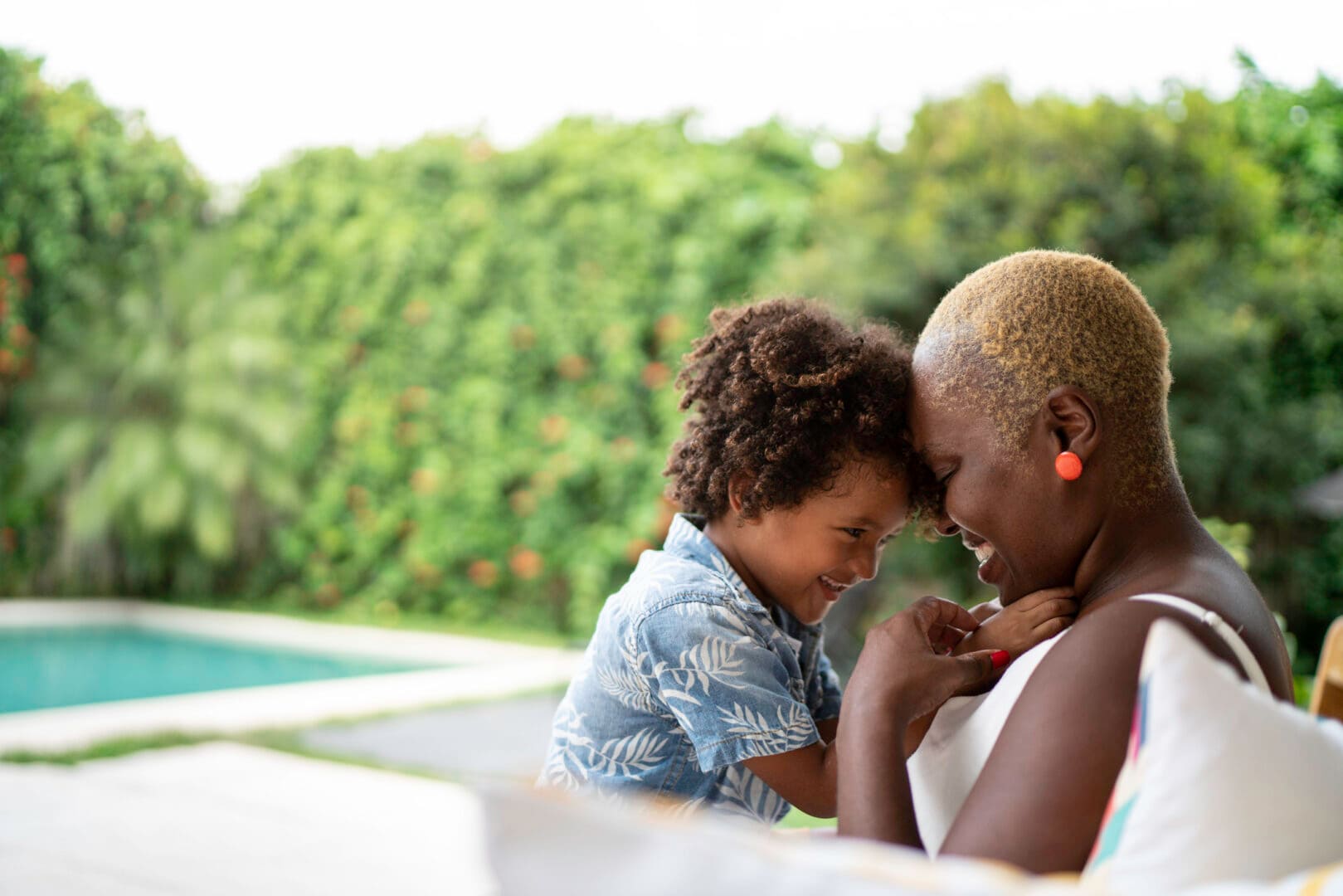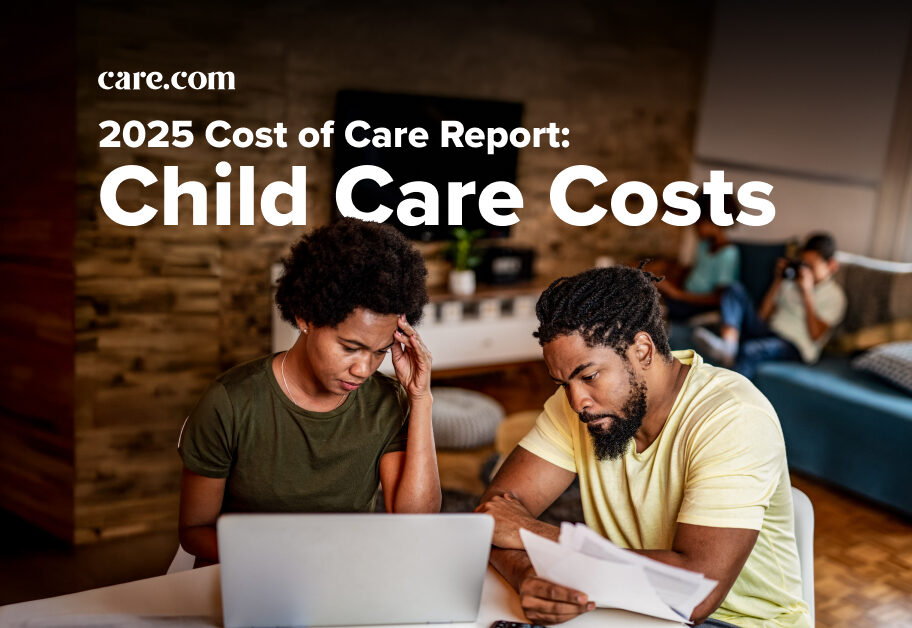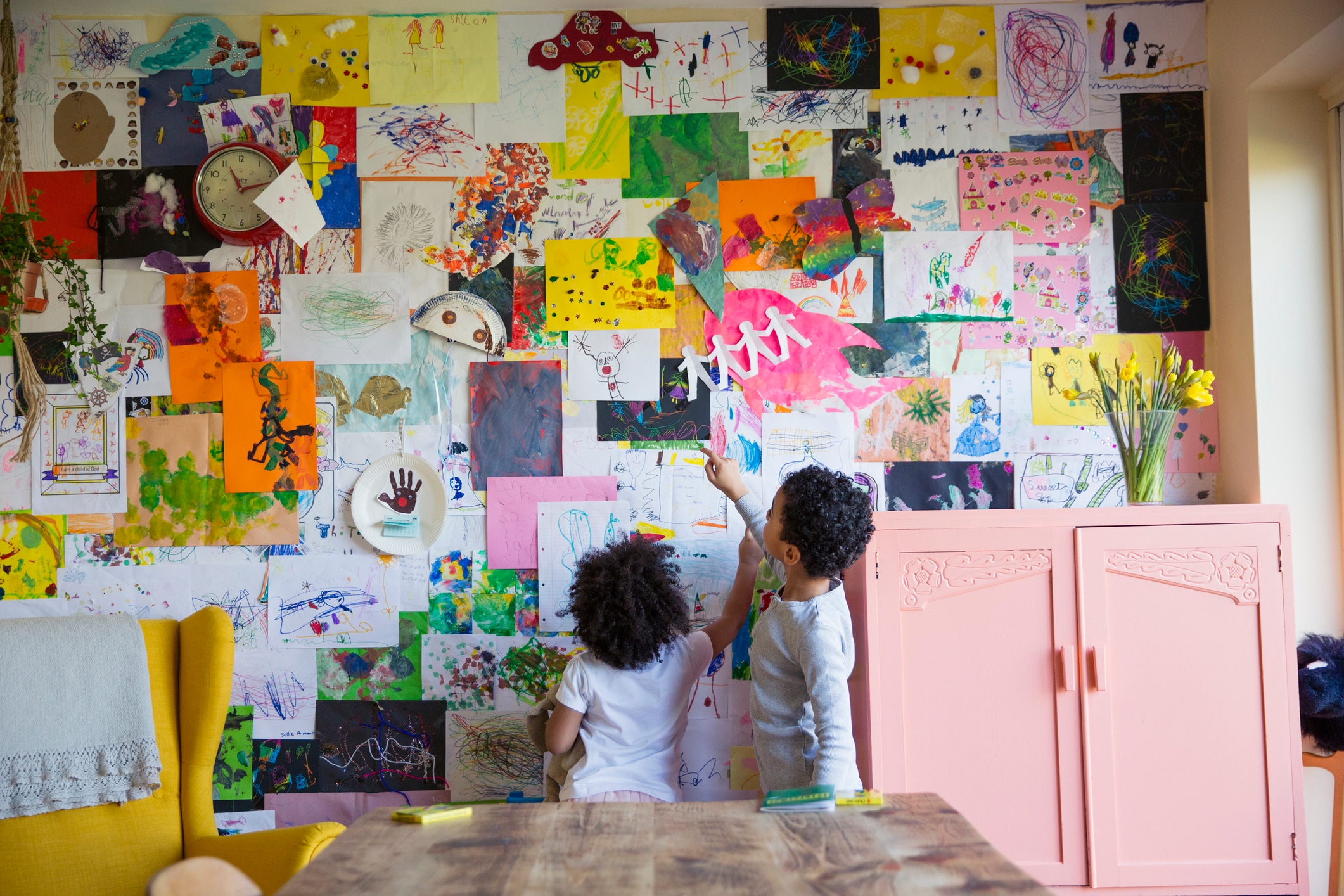The common narrative about Black parenting is that Black parents have strict and firm rules and boundaries for their kids, are less tolerant of kids talking back and so on. Take one look at the hashtag #blackparentsbelike, and you’ll see. In fact, when I interviewed mom, social media influencer and author Destiny Bennett for this piece, I asked her what she felt was the common narrative about Black parents. Her answer? “We don’t play.”
What most people often neglect to consider about this narrative is why. The backstory is one that is steeped in fear, trauma and racism. Black parents “didn’t play” and maintained a strict parenting style to prepare their child for dealing with a white adult. “They wanted to instill in their child: ‘If you play, you can get killed’,” says Dr. Mia Smith-Bynum, professor of family science and health at the University of Maryland School of Public Health.
Bennett says that society also sees Black parents as “violent.” For this reason, the tide is changing among modern Black parents. And with this shift, we’re seeing a desire among parents to create a new narrative around Black parenting and what it looks like.
Today, there’s a new wave of Black parents actively parenting away from the old narrative in many ways. Parents are practicing and sharing about gentle parenting as a way to heal generational trauma and reframe the common ideas held about Black parenting and expand the conversation.
How history has shaped Black parenting
“People parent the way they were parented,” explains Smith-Bynum, “which is not about race.” Unfortunately, for some, parenting from a place of survival or fear became the norm in some families and was handed down to other generations.
“Black parents who tended to be stricter and use corporal punishment as part of their parenting style had concerns for their child’s safety,” says Smith-Bynum. She goes further to say that mistakes that Black children make outside their parent’s care, especially during the Jim Crow era, generally have greater consequences. And unfortunately, that’s still true today. “No parent wants their kid to be the next Trayvon Martin,” she adds.
“Black parents who tended to be stricter and use corporal punishment as part of their parenting style had concerns for their child’s safety.”
— DR. MIA SMITH-BYNUM, PROFESSOR OF FAMILY SCIENCE AND HEALTH
But Smith-Bynum also says it’s important to dispel stereotypes that paint all strict parenting as abusive. “Black parents had to be stricter, but the misconception is there was no warmth,” she explains. “Black families tended to blend high levels of strictness with warmth and engagement.”
How access to research is shifting Black parenting styles
Smith-Bynum says the emergence of Black families entering the middle class and having the financial resources and time to continue their education allows “for more discernment to distinguish good information from bad information.”
Similarly, Dr. Adrea Theodore, a Black pediatrician based in North Carolina, says, “As more people become educated about child behaviors, I think it is easier for people to move away from harsh practices.”
“As more people become educated about child behaviors, I think it is easier for people to move away from harsh practices.”
— DR. ADREA THEODORE, PEDIATRICIAN
Theodore gives pediatric research much of the credit for increasing awareness and educating parents on best practices around discipline. “The American Academy of Pediatrics (AAP) and other organizations have recommended “no spanking” and/or using other forms of discipline for many years. There’s lots of research that shows it doesn’t help with behaviors (and often makes them worse).
Meclina Gomes, mom to a college student, a high schooler and a first grader, from New Bedford, Massachusetts, says she began studying child psychology 19 years ago with her first child. She explains she wanted to “move away from the authoritative structure and hard, aggressive energy” she saw as the standard way to discipline children.
Gomes admits that she can’t say she has never spanked her kids, but it has never been her go-to strategy for discipline. She explains, “I learned early that a spoonful of sugar worked a lot better than vinegar.”
Social media shares a new perspective for Black parents: gentle parenting
Today, on TikTok and Instagram, you can find many Black “momfluencers” building platforms for new generations of parents to stand on and working to share the practices and benefits of gentle parenting and conscious discipline.
One influencer, Destini Ann uses humor and plenty of examples to get her message across. In one video, she describes her parenting role as a 51% shareholder in which she has the final say in the business of keeping her daughter safe. She also includes the importance of setting boundaries.
Another influencer Erica M. Burrell, who goes by @_theteacherlady, takes time out to remind parents that implementing every aspect of gentle parenting can come down to privilege.
Dr. Ann Louise Lockhart, a pediatric psychologist, uses her Instagram page to give parents gentle parenting tips. In one post, she offers family meetings, clear rules, apologies and consistency as alternatives to “yelling, spanking, excessive lecturing, nagging, threats or anything else that is unnecessarily painful for the child.”
How gentle parenting takes a child-centered approach
Tonya Abari, mom of two from Nashville, Tennessee, says the best aspect of gentle parenting is “treating the child as a whole person with feelings.” However, she shares, this was not something she or her husband learned at home when they were kids.
“There were plenty of opportunities to talk and express ourselves, but there often weren’t any tangible resolutions and [there was] a LOT of lecturing, aka talking to us and not with us.” She says conversations often ended with, “it’s just the way it is” or “right now you don’t understand, but you will when you have your own children.”
“This made me a very anxious child,” Abari explains, “because I knew I’d get lectured and not really have my feelings taken into consideration. For my spouse, who is first-gen Nigerian American, he never had the opportunity to speak about his feelings at all.”
“I’m most excited about seeing the benefits of leading with compassion, which we already are. Our kids don’t have to worry about ‘getting in trouble’ for thinking or feeling a certain way. Instead, we navigate it all together.”
— TONYA ABARI, MOM OF 2
Abari says she is excited about how her parenting will impact her children. “I’m most excited about seeing the benefits of leading with compassion, which we already are. Our kids don’t have to worry about ‘getting in trouble’ for thinking or feeling a certain way. Instead, we navigate it all together. Yes, we have boundaries and natural consequences, but eliminating potential anxiety from talking to us is an important chance for us to get it right with our own.”
The common misconceptions of gentle parenting
Destiny Bennett, a Las Vegas TikTok mom of three, is not only a social media influencer but the author of the book, “Revised Not Repeated: A Brown Mom’s Guide to Breaking Generational Curses In Parenting.”
Bennett is among the influencer moms working to share the benefits of gentle parenting. She also posts video scenarios on her TikTok and Instagram pages and teaches courses for parents who want to learn more.
“It’s about teaching them (your children) how to have a good relationship with you and about being mindful of their brains and their development.
— DESTINY BENNETT, AUTHOR AND MOM OF THREE
Bennett says there are common misconceptions about gentle parenting that can get in the way for some parents. In the beginning, she says other people’s judgments kept her from sharing her beliefs. Some of the things she heard? “You’re not going to have any control over your kids,” “Your kids are going to be disrespectful” and “You’re spoiling them.” She says people assume gentle parenting is parenting without boundaries.
“People think too far left and are not knowledgeable about what it means to be a conscious parent. It’s about teaching them (your children) how to have a good relationship with you and about being mindful of their brains and their development,” says Bennett.
In one video, Bennett shares a technique she uses to focus her children when they repeatedly ask “why?” when they are given directions she needs them to follow.
Why it’s not easy for Black parents to leave the old ways behind
For many parents, it’s not as simple as picking up a new parenting style and sticking to it. There are significant challenges.
“There is a disproportionate number of Black families living below the poverty line and being led by single parent homes. Combine the wealth gap and the gender wage gap, with the impacts of systematic racism and racial violence and you have a lot of stressed-out parents who have less emotional reserves for patience, for thinking through how to approach discipline or to stay calm,” says Smith-Bynum.
“The hardest part,” says Gomes, “is staying calm and compassionate and holding space for my children and not being emotionally triggered by some of their actions.” She says staying calm comes down to “emotional bandwidth,” and not everyone has it.
Theodore says there are many reasons why some parents still default to old practices. “People also have trouble stepping away from tradition (‘My parents did it this way, and I turned out OK’), but I think people are also open to hearing that there might be a better way, again, without being disrespectful to our parents and how they did things based on what they knew and their own fears or misconceptions.”
How narratives around Black parenting are evolving
Access to resources, the slow shift to more equitable social norms and each unique parent’s emotional and mental capacity will continue to shape parenting styles. But it doesn’t end there.
The deep desire to move away from past memories of violence and fear is leading many Black parents toward a gentler approach. Black parents who choose gentle parenting are listening more to their kids. What may be considered a parenting style for the privileged is quickly becoming a new narrative and an achievable reality for some Black families.





